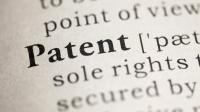New CJEU ruling on supplementary protection certificate for second medical use products
With its judgment of 9 July 2020 in the Santen case (C-673/18), the European Court of Justice has clarified its interpretation of Article 3(d) of the Regulation on the supplementary protection certificate ("SPC") for medicinal products, which stipulates that the marketing authorisation relied upon for an SPC must be the "first" marketing authorisation for the corresponding product.

On 19 March 2015, Santen, a Japanese pharmaceutical company, obtained a marketing authorisation ("MA") for the medicinal product "Ikervis", which uses the active ingredient ciclosporin. On the basis of the MA and one of its basic patents, applied for in 2005 and covering an ophthalmic emulsion in which the active ingredient is ciclosporin, Santen applied on 3 June 2015 for a supplementary protection certificate ("SPC") for the product "Ciclosporin for use in the treatment of keratitis". However, Santen's SPC application was rejected by the French patent office (the "INPI") in 2017, on the grounds that Santen had failed to comply with Article 3(d) of the SPC Regulation, as Santen's MA was not the first MA for ciclosporin. The INPI referred to an MA granted in 1983 for the product "Sandimmun", which also comprised ciclosporin as its active ingredient.
Santen brought an action against the INPI's decision before the Paris Court of Appeal arguing that the Sandimmun MA was not relevant because it referred to an oral solution and not the emulsion of Santen's basic patent, and because differences in the method of administration. The INPI referred the case to the European Court of Justice ("CJEU"), requesting a preliminary ruling on the interpretation of Article 3(d) of the SPC Regulation.
The CJEU held that Article 3(d) must be interpreted as meaning that an MA cannot be considered to be the first MA, for the purpose of that provision, where it covers a new therapeutic application of an active ingredient or of a combination of active ingredients, and that active ingredient or combination has already been the subject of an MA for a different therapeutic application. Furthermore, the CJEU stated that there is no need to take into account the limits of the protection of the basic patent when defining the concept of the first MA for the corresponding product for the purpose of Article 3(d). Hence, the CJEU explicitly ruled contrary to its earlier judgment in the Neurim case (C-130/11).
The CJEU's judgment confirms that an SPC cannot be obtained for second medical use products and thus provides some clarity with regard to the rules on SPCs. However, the judgment might also limit the incentive to research into new uses of existing medical products and thus constrain innovation within this field.
Read the European Court of Justice's judgment here.
UK withdraws from the Unified Patent Court project
On 20 July 2020, the United Kingdom took the final step towards its withdrawal from the Unified Patent Court Agreement (the "UPCA"), when the British government wrote to the Council Secretariat on the United Patent Court to withdraw the United Kingdom's ratification of the UPCA. Furthermore, Minister of the United Kingdom, Amanda Solloway, made a similar parliamentary written statement in the House of Commons. The withdrawal should be seen in the light of Brexit, the practical and political implications of the United Kingdom's withdrawal from the UPCA are not clear, but this development must be regarded as a setback for the project as a whole.
Contact

